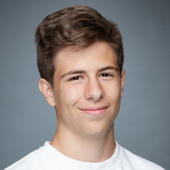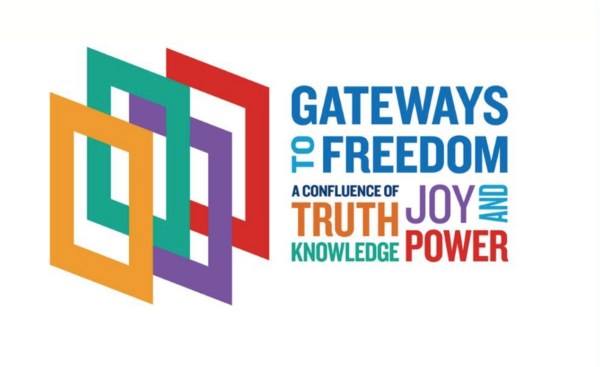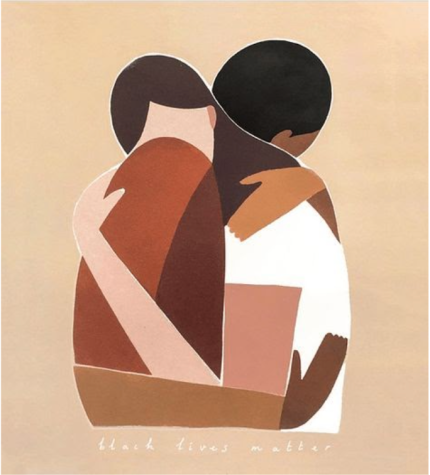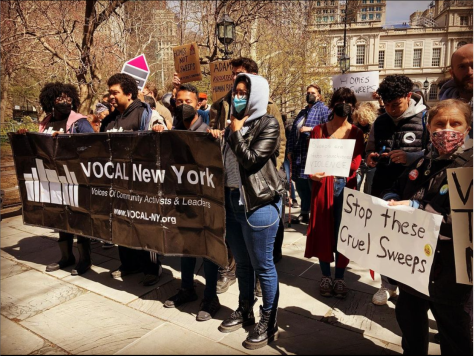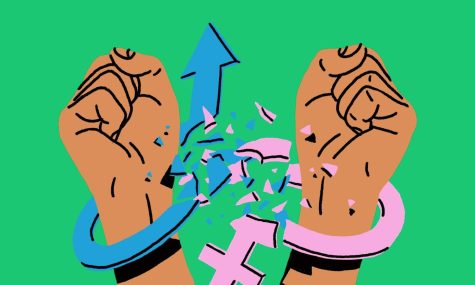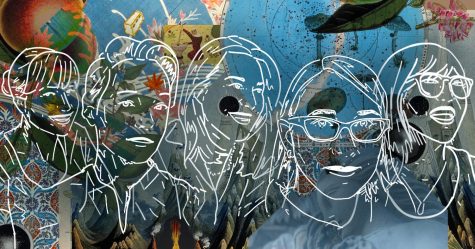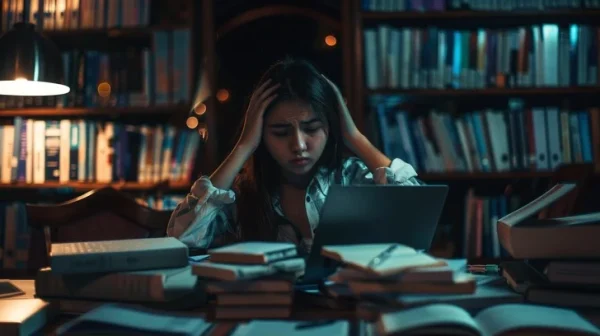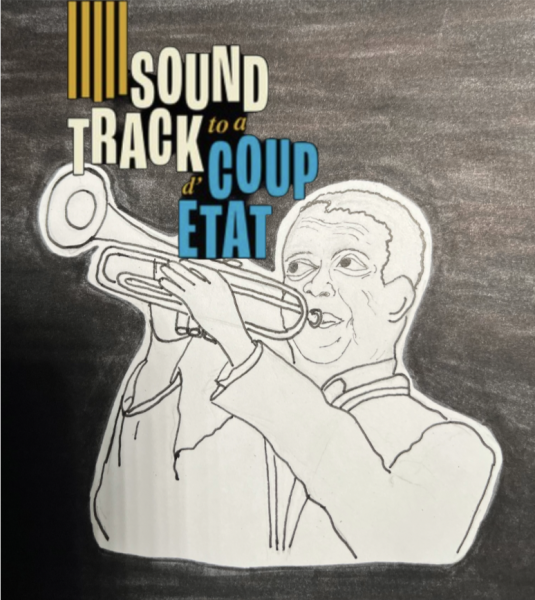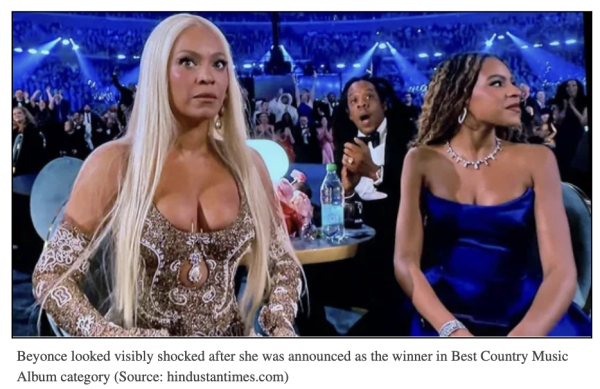Rachel Barek (’97) Talks Discrimination
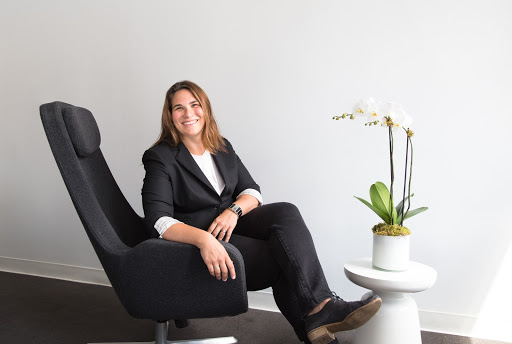
Ms. Rachel Barek (Photo by Liz Jamora)
As UNIS continues to confront issues of diversity, racism, and inclusion in its community, it continues to be important to reflect on the past. To do that, we have to talk to those who have experienced UNIS and the world beyond, to see what they might have to say. We previously interviewed Mr. Alain Sylvain, a Black alum (class of ‘94), about his experience at UNIS. Ms. Rachel Barek’s (class of ’97) experience, though it was very different, underscores many of the same lessons and problems, and discusses the process of acknowledgement, learning, and improvement that is so necessary for the UNIS community, and most importantly, UNIS itself, to go through.
What’s your name and what do you do?
Rachel Barek, and I’m a founding partner of Said Differently, a global innovation consultancy. I love my job.
What’s your relation to UNIS?
It’s synonymous with my own identity. I was there from kindergarten through T4. It’s a couple of blocks from where I grew up, and still today, a lot of my closest friends are from UNIS.
The school portrays itself as the UN school not just in name, but in its perpetuation of UN values, such as being inclusive and diverse. In your experience, has this claim held up?
In some ways, yes. I was exposed to a more diverse population than if I had picked a different school. There is a common thread among UNIS folks, we are a thoughtful and intellectually curious bunch, and looking back, I think my friendships were formed off of those values, and even as an adult I benefit from this. However, because I was told UNIS equals diversity, I incorrectly assumed I had all the tools and knew everything I needed to interact with people who weren’t like me. Recently, I realized UNIS left some significant gaps for me.
You started UNIS in kindergarten, so I don’t assume you had any problems fitting in. Do you think it would have been the same for kids who came later?
I think UNIS created a pretty warm, welcoming environment. However, in hindsight, and this might be informed by what I’ve been reading in the BlackatUNIS Instagram feed, or by me just going back into my own memories and thinking about it, there was definitely a Eurocentric bent, not only to the curriculum, but also in terms of values, morals, and the way that we talked about things. Also, UNIS was extremely heteronormative.
Did you ever experience or see any racism or discrimination at UNIS?
I never experienced it, but looking back, I did witness it. However, I did not realize that what I was looking at was discrimination. I take some responsibility for that, I also put some responsibility on my parents, and a lot of responsibility on UNIS. It’s worth noting that the behavior that I saw wasn’t just from other students, but at times from teachers and administrators.
It’s interesting that you say that, because when I talked to Mr. Sylvain, he also said that there was discrimination, but that he didn’t fully realize at the time.
Looking back at my memories with an adult perspective and the context that we have in today’s environment, you think “some of that’s a little messed up,” or “where was the adult in the room telling us that wasn’t OK?¨ I remember some of the stuff that came out of adults’ mouths at the school, and, though I don’t want to call anybody out, it was very inappropriate.
Was the discrimination you saw ever dealt with?
No.
Many have noted that UNIS used to be much more diverse and inclusive, but that at some moment it began to shift away from that. Did you notice that? What can you tell me about that?
I don’t know if this was because I was naive because I was younger, but I would say UNIS was incredibly diverse when I was a student.
The thing that I think they did unbelievably well was dealing with socio-economic diversity. Either that or I was just totally oblivious to it. There were families with crazy amounts of wealth and others that I now realize were struggling to be able to afford UNIS, and I had no clue. I’m not sure if I should credit UNIS or my parents for not drawing attention to that, but I really didn’t see socioeconomic discrimination at all at UNIS, while I know it was rampant at other NYC private schools.
What I did see was unconscious bias from members of the administration and faculty towards students. There were scenarios where the same behavior coming from male person of color as opposed to someone else was considered more problematic. I don’t know if the teachers were aware they were doing this, I think it was all just subconscious, and I didn’t notice it at all. It’s only now, hearing these stories and replaying it for myself that I can think of a few kids and go “yeah, they were definitely treated unfairly.”
Compared to now, in terms of demographics, UNIS used to be a lot more diverse. Why do you think that is?
I think that the overall wealth disparity in NYC is greater now, and that there was less competition for private schools when I was attending. So UNIS probably has more pressure (as a business) to survive now. That said, UNIS has a moral imperative to figure out a way to be both a viable organization and a diverse and inclusive school. If UNIS starts accepting ONLY kids who can pay the full freight, they will skew the student population (wealth being disproportionality held by whites in the US). Diversity is literally part of UNIS’s essence – to lose that is to lose its reason for existing.
A lot of people have mentioned a culture shock after leaving UNIS and going into the real world. Interestingly, a lot of people said they felt UNIS was a much more diverse and inclusive environment than where they went after, while many people said the opposite. What was your experience?
I went to Hamilton college after UNIS, and it was a shock. I went from an urban environment to a rural environment and in addition, despite diversity efforts, Hamilton was unbelievably white. I felt like there were cliques of kids based on where they came from, how much money they had, or their country of origin. I never saw that at UNIS, and so it was very hard for me.
How did UNIS prepare you for the real world in terms of diversity and inclusion?
We were never really taught (progressive) American History. I didn’t know what Juneteenth or the Tulsa riots were; I had to learn all that as an adult. So, academically, I don’t think I ever got the foundation of knowledge that would have helped me have a better perspective as an adult in America.
At UNIS, we were taught “not to see color.” Today, we know this approach is problematic. I’m trying to shift my own mindset to “It’s absolutely important to see color, to acknowledge those differences and to acknowledge the extra hurdles that POC have to overcome.” What I’m rethinking now is how I can make sure that people who haven’t had as many opportunities are getting opportunities with Said Differently.
Even last week, I led a panel on “Back to School for Working Parents,” and a UNIS alum said “Rachel, your panel is all white, what are you doing?” I didn’t pick the panel, but I love that my UNIS friends will always call me out and help me improve. Next time, I’ll be the one asking the leaders of the panel to be more inclusive.
That said, UNIS provided me with the social tools to be extremely comfortable interacting with people from all over the world. My company is global, so on any given day I’m working with people from all over the world and I barely think about it.
So, my answer to your question is mixed. If you had asked me before the BLM movement, and BlackatUNIS, I would have said “UNIS was fantastic at all of this stuff,” but now I’m rethinking it.
What were your initial reactions to the BlackatUNIS account and its stories?
It viscerally upset me. I was shocked on so many levels. I’ve always held UNIS up in such high regard, especially in contrast to my college and grad school. Looking back, I realize it had serious flaws and that I probably contributed to some of the problems. That was the hardest reconciliation for me. For example, recently, when talking to a childhood friend from UNIS (who is a POC), she was brave enough to have an uncomfortable conversation with me and help me realize that some of the things I had said to her weren’t respectful. I was horrified by my own actions, albeit from over 25 years ago, and I’m so grateful that she told me how that made her feel.
I deeply care about UNIS, and I think it’s important for them to acknowledge where they went wrong and own and correct the missteps. My journey is not so dissimilar from UNIS’s in that way. It’s now about what UNIS is going to do to improve, and that it’s not lip service, but actual change.
What do you think about the movement for change within the school?
I think the fact that everyone has the administration’s attention is really important. I think the fact that the parent association is addressing this is really important because the power sometimes moves with the money and the school’s reputation.
Any real change takes time. What I want to see, to show that the change is real, is a dashboard for numbers and analytics. Questions like “show me representation in the faculty and the administration at senior levels, show me actual changes in the curriculum, show me changes that are happening within the school from the admissions processes.” Until you see quantifiable movement, it’s all PR and lip service.
Over all your time in UNIS have you seen improvement in terms of diversity, racism, and discrimination?
No, I think we’re actually worse than we’ve been. All I know about current unis is from the black at unis channel. So from that data, it seems like unis got worse since my time
What would you recommend students be doing right now?
There is power in the students taking ownership of what they want to learn about and bringing that to teachers. Nothing excites teachers more than having engaged students who want to learn. So, a question back to you is “When the Black Lives Matter protests were beginning – was that something that school started addressing with you guys? Are you guys getting a better American History education compared to me?”
That’s a good question for the readers, but I’ll answer it too. While my history teacher did talk about the topic with us, talking to my friends, I’m not sure they had the opportunity to discuss it.
One criticism I have of the administration from my years was that not all teachers were created equally. I had some amazing teachers, but I also had some who hadn’t updated their lectures in 20 years. You need to push the administration to make sure that you’re getting timely and relevant information. History, that word, is literally every single day up until today, so history changes. The last 20 years need to be taught in school, and how we discuss issues needs to be updated. If you aren’t seeing those changes from the teachers then you should bring it to the administration or put it on social media and let other folks and parent groups help. That’s also why I reached out, to make sure that if you are wanting and not seeing changes, other people can help you make sure that UNIS changes. I feel loyal to the school, but because UNIS is my school and I don’t ever want my school to be talked about the way it’s being talked about, I also feel an obligation to help fix it.
Do you think UNIS can change? What has to change within it for that to happen?
I do. I think almost any school, company, or brand can change. I think three things need to happen: Firstly, they need to want to. The administration and the leadership need to have a moment similar to the one that I had, the “I was wrong, let’s fix it” moment. The second is that we can’t just rely on people of color to make things better for people of color. That is unbelievably unfair. There are professionals who can help with this, both from the perspective of representation within the school as well as the curriculum. UNIS needs to invest in that. Finally, UNIS needs a better communications system, to let everybody know exactly what it is that they’re doing, and to constantly look for feedback. The bravest thing UNIS can do is ask for help, publicly or privately, when they know they don’t know. I think that if UNIS is open to those things, yes. If I didn’t think they could change there would be no point in talking to you. I want them to change, I think it’s super important, just like I know I need to change.
We’ve begun to hear and see some of the things you mentioned from the administration in the past weeks, so I think that’s a great sign.
Yeah. Don’t stay quiet. Keep asking for updates.



